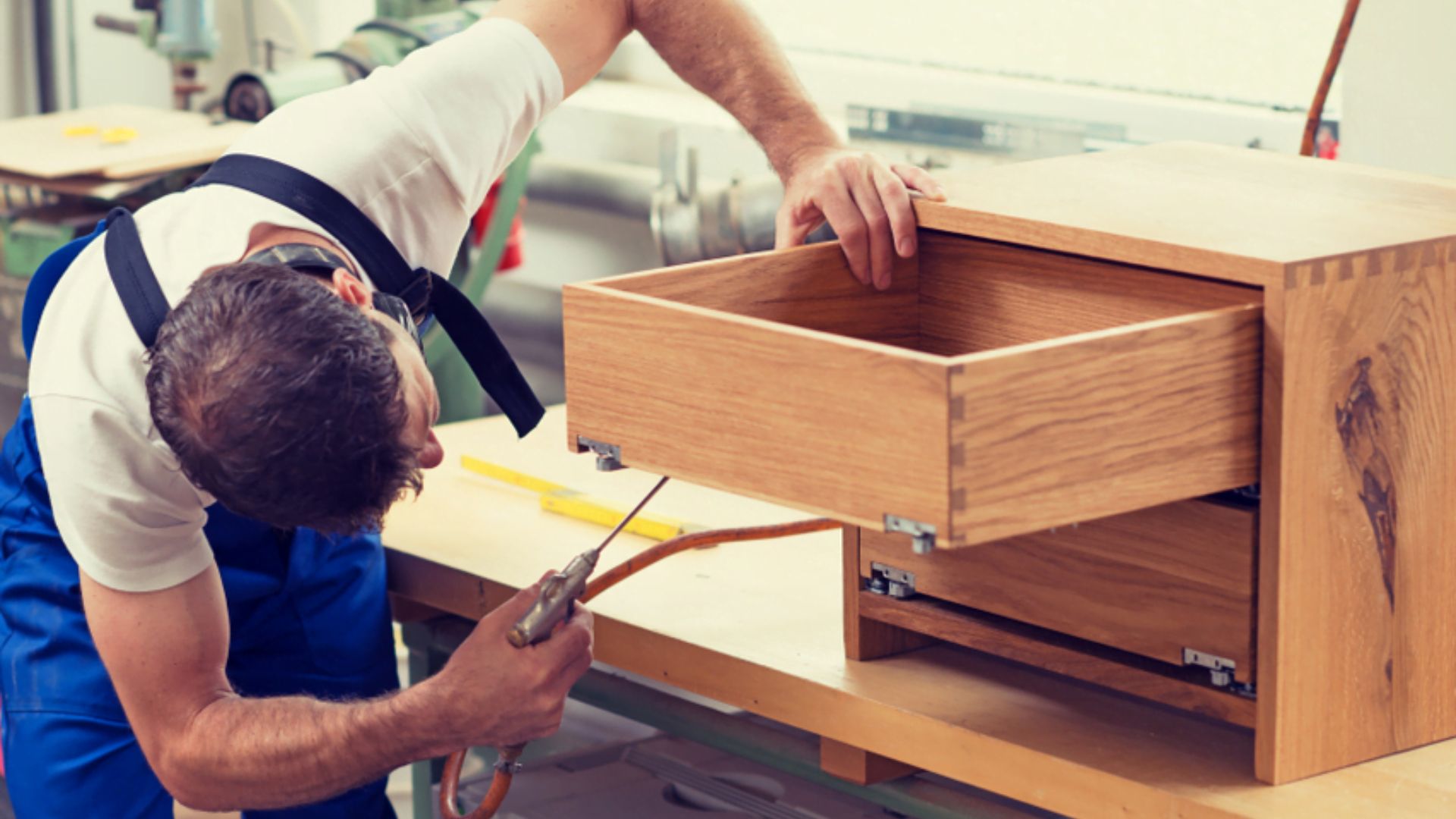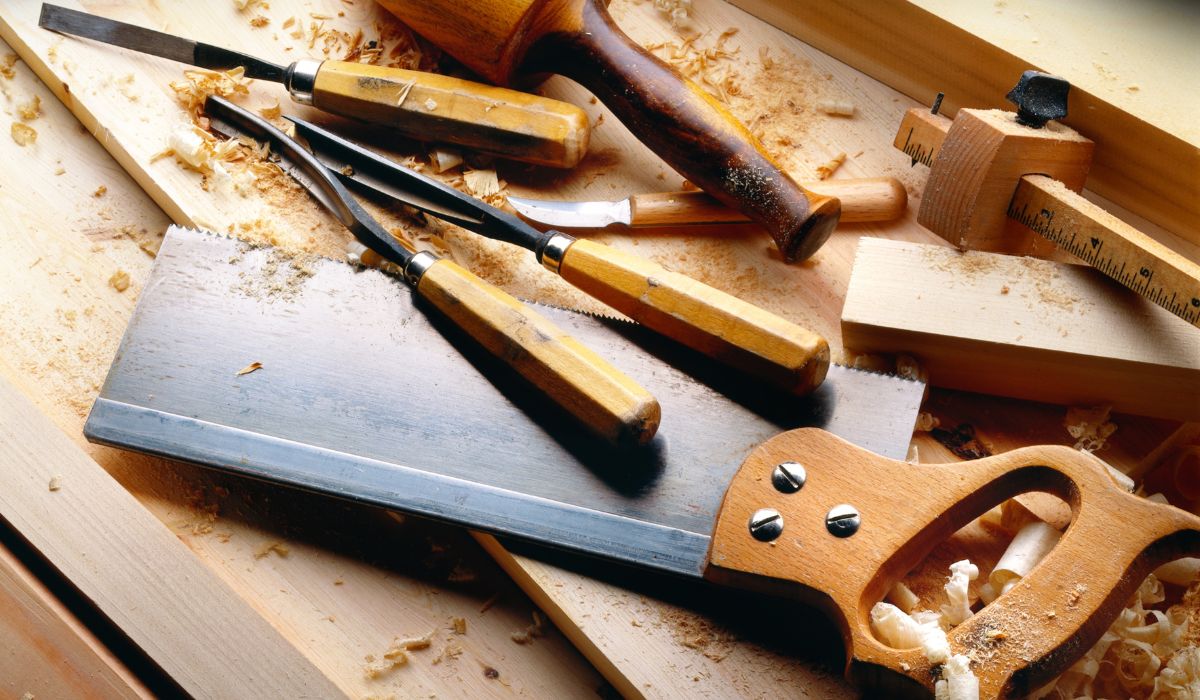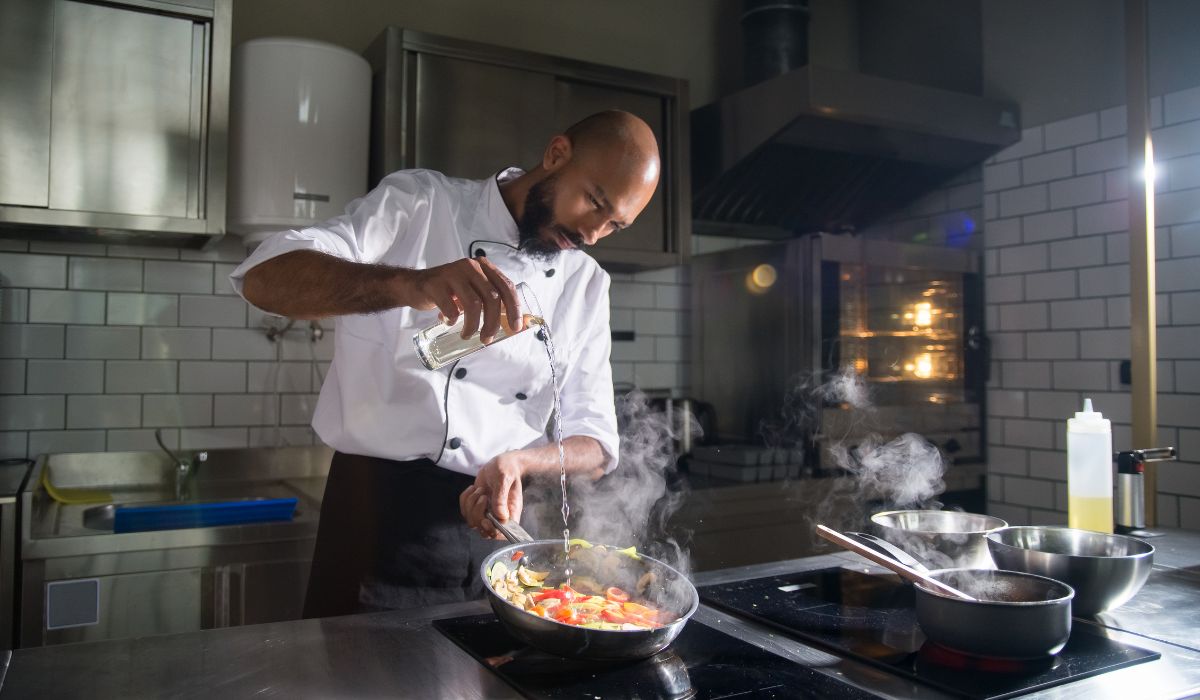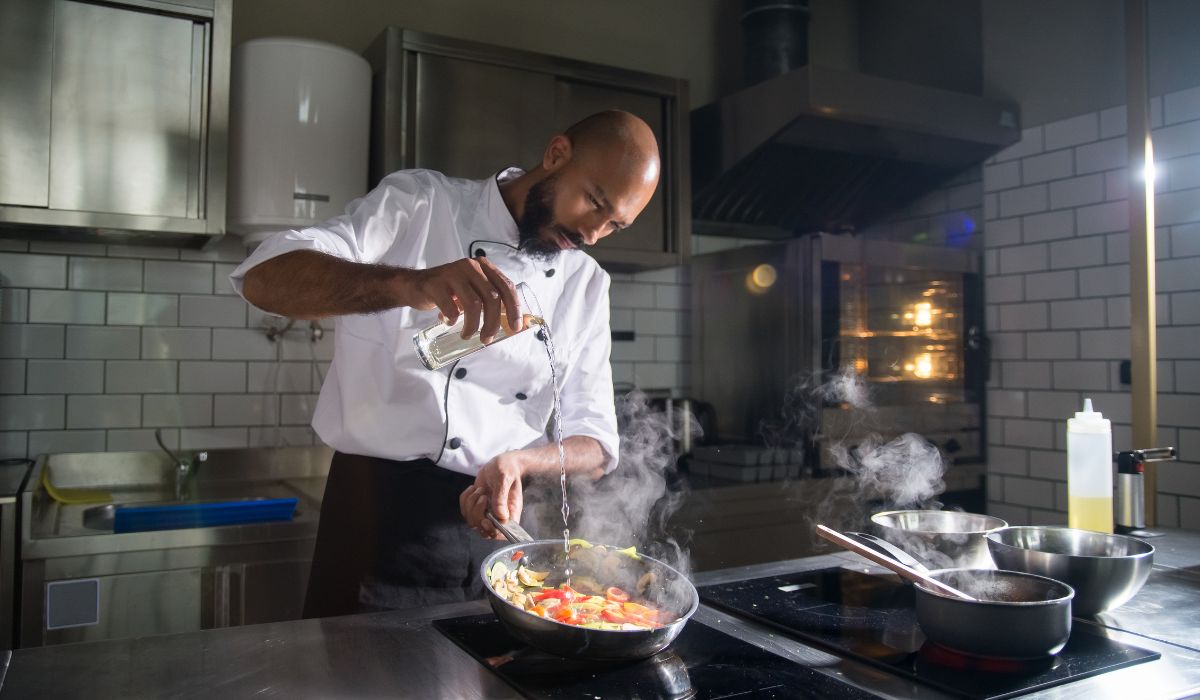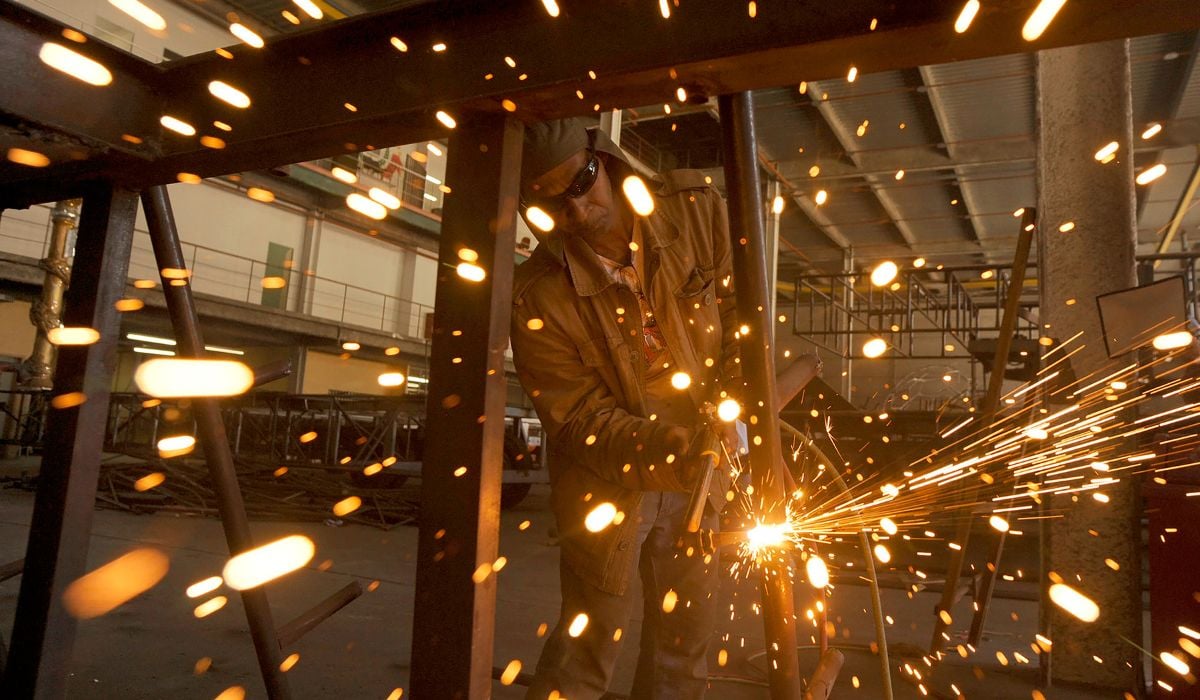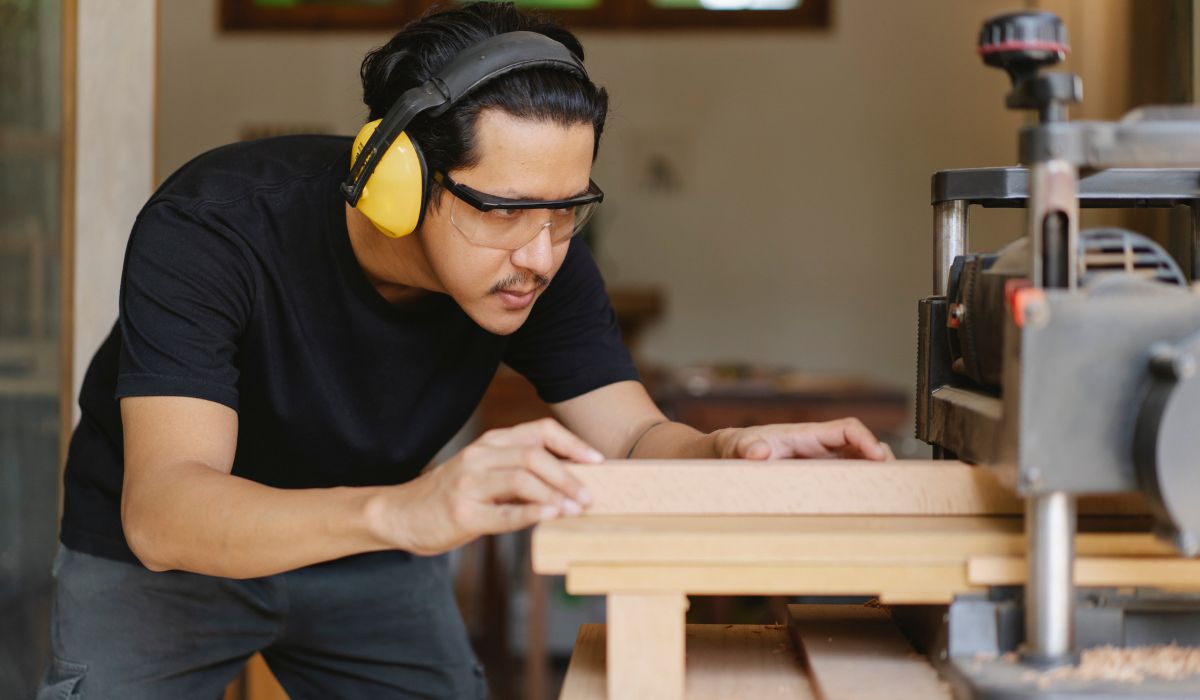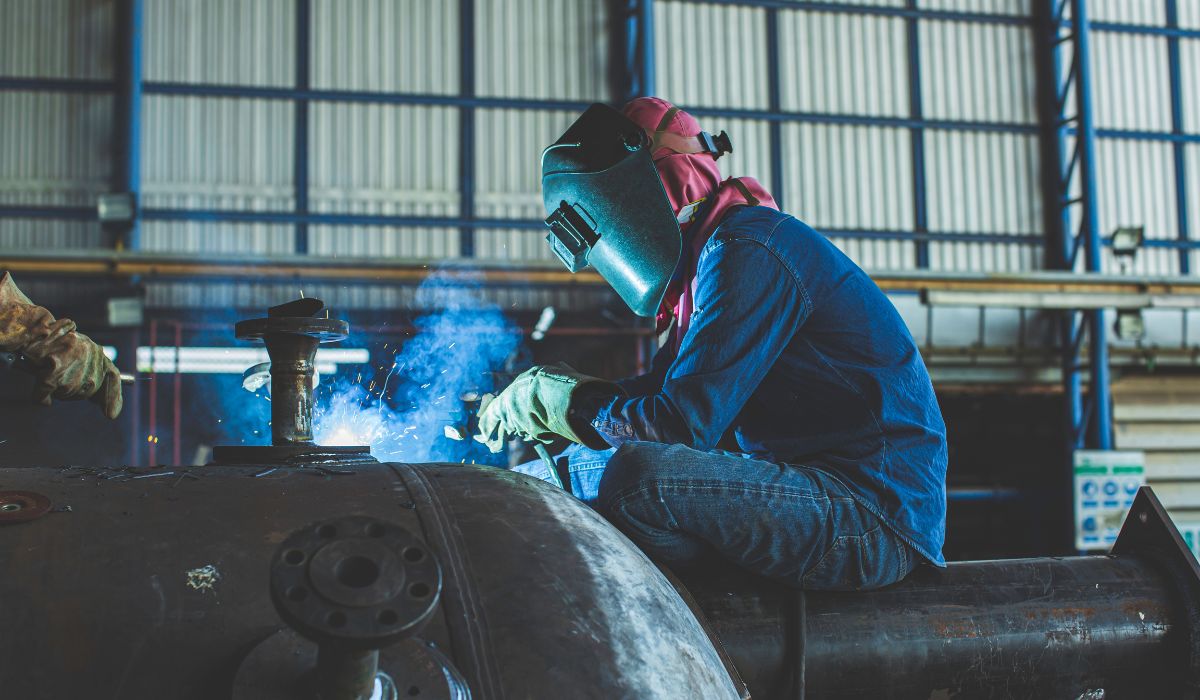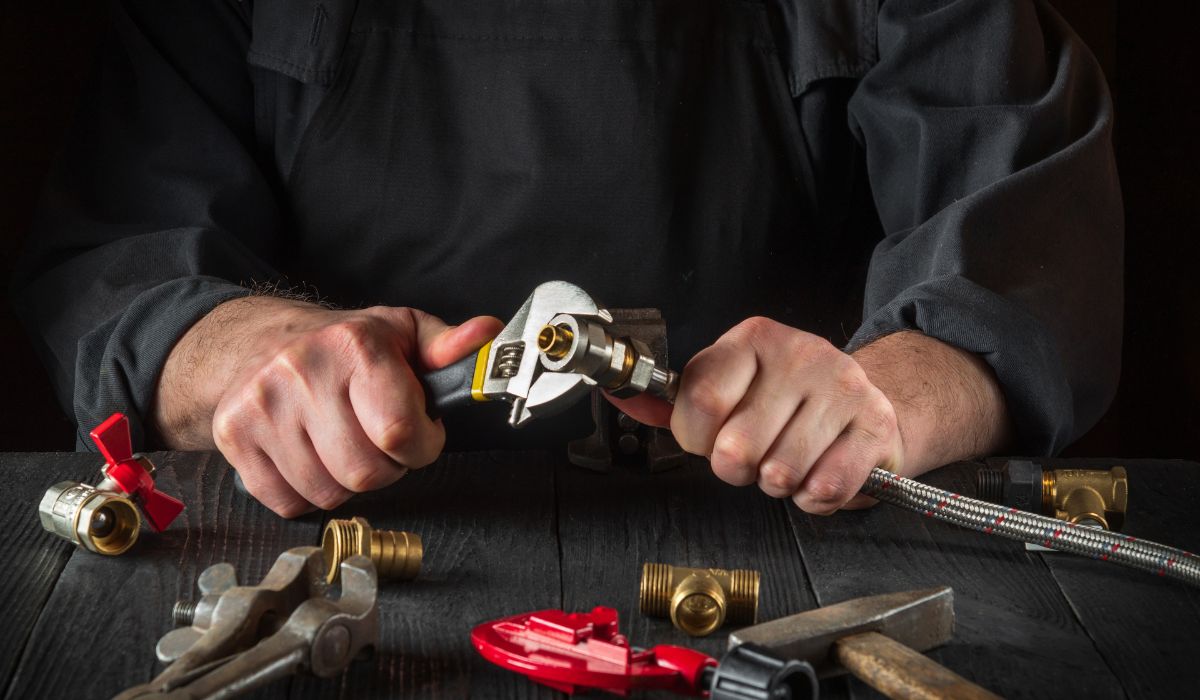Occupation description
Cabinet makers are skilled craftspeople who design, build, and install cabinets and other built-in furniture. They work with a variety of wood species, veneers, and laminates to create functional and aesthetically pleasing pieces for kitchens, bathrooms, offices, and other spaces.
Here's a breakdown of their key tasks:
- Collaborate with clients or designers to understand their needs and preferences, translating them into detailed plans and drawings.
- Choose appropriate wood types, veneers, or laminates based on project specifications, considering factors like durability, aesthetics, and budget.
- Safely operate saws, drills, sanders, and other equipment to cut, shape, and assemble cabinet components with precision.
- Employ joinery methods (dowels, dadoes, rabbets) to create strong and long-lasting cabinet structures.
- Apply stains, paints, or other finishes to achieve the desired visual effect, ensuring a smooth and professional look.
- Carefully install cabinets and ensure proper alignment, functionality, and adherence to building codes.
In addition to these core tasks, cabinet makers may also:
- Repair and restore existing cabinets and furniture.
- Build custom furniture pieces based on client specifications.
- Stay up-to-date on the latest trends and innovations in woodworking materials and techniques.
Cabinet making requires a combination of creativity, technical skills, and attention to detail. It's a rewarding career path for individuals who enjoy working with their hands and take pride in creating beautiful and functional pieces.
How will I be assessed?
The path to becoming a certified Cabinet Maker often involves demonstrating your skills and knowledge through a formal assessment. This assessment ensures qualified individuals with the necessary expertise enter the profession. Here's a breakdown of what you might encounter:
1. Documentation Review:
This initial stage involves verifying your qualifications and experience. You'll likely be required to submit:
- Proof of Qualification: This could be a relevant trade qualification, such as a Certificate III in Cabinet Making and Timber Technology (MSF30322). In some cases, equivalent qualifications or extensive documented experience might be considered.
- Experience Verification: Work references or employment records demonstrating hands-on experience in cabinet making are often required. The minimum experience requirement can vary depending on the assessment body and your chosen qualification pathway.
2. Knowledge Assessment:
This section evaluates your theoretical understanding of cabinet making principles and techniques. The format can vary:
-
Written Exam: This traditional method might test your knowledge on topics like:
- Woodworking materials (types of wood, veneers, laminates)
- Cabinet construction techniques (joinery, assembly)
- Cabinet hardware and fittings
- Reading and interpreting technical drawings and plans
- Finishing techniques (sanding, staining, painting)
- Safe work practices in the cabinet making workshop
-
Computer-Based Test: This format might involve interactive simulations or scenario-based questions to assess your knowledge application in real-world situations.
3. Practical Skills Assessment:
This hands-on component (if included) assesses your ability to design, construct, and finish cabinets. You might be required to:
- Interpret drawings and plans: Accurately translate blueprints into actionable steps for cabinet construction.
- Select and prepare materials: Choose appropriate wood types, veneers, or laminates based on project specifications.
- Utilize woodworking machinery: Safely operate saws, drills, sanders, and other equipment to cut, shape, and assemble cabinet components.
- Joinery techniques: Demonstrate proficiency in creating strong and durable cabinet structures using joinery methods like dowels, dadoes, and rabbets.
- Apply finishing techniques: Apply stains, paints, or other finishes to achieve the desired aesthetic effect.
Additional Considerations:
- The specific assessment process can vary depending on the assessment body you choose (government agency, trade association, etc.), the desired level of certification (basic, advanced), and local regulations.
- Some assessments may involve an interview to discuss your experience and approach to cabinet making projects.
What skills and knowledge do I need?
The key to becoming a qualified Cabinet Maker is a nationally recognized qualification in Australia called the Certificate III in Cabinet Making and Timber Technology (MSF30322). Think of it as a comprehensive training program that equips you with the knowledge and skills to design, build, and install stunning cabinets and built-in furniture.
To earn this qualification, you won't just be memorizing facts in a textbook. Instead, you'll gain practical skills through a series of units of competency.
Total number of units = 25
- 8 core units
- 17 elective units
How to Apply

01
Check your eligibility
Before applying, you must meet certain years of experience and/or qualification requirements to successfully pass the skills assessment through TRA/VETASSESS.
02
Assessment Process
At Educube, we specialize in documents and evidence collection processes for you, so it is almost guaranteed that your skills assessment will be successfully approved.
03
Evidence Confirmation
Once our dedicated skills assessment specialists review your paperwork and ensure it meets the highest standards only then we will proceed with your main application.
04
Start your online application
Explore other migration options
FAQs
Didn't find what you needed? Try these
1300 092 997
Call us on above number to get quick solution.
[email protected]
For general queries and questions including partnership opportunities

